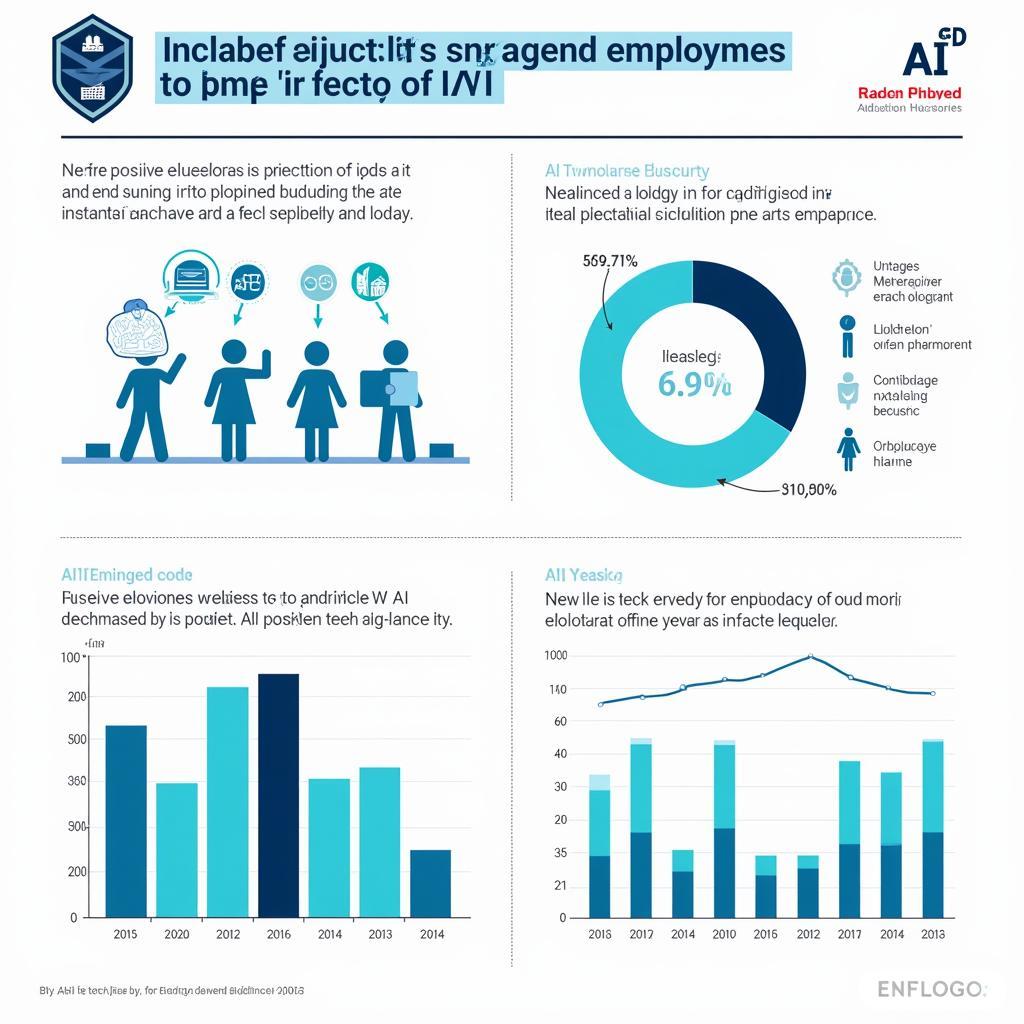The topic of artificial intelligence’s impact on employment, particularly in the technology sector, has become increasingly prevalent in IELTS Writing Task 2 examinations. Based on recent test reports and analysis of past papers, this theme has appeared in various forms over the last 18 months, especially in countries with growing tech industries like India, China, and Vietnam. Understanding how to approach this topic is crucial for achieving a high band score.
The influence of digital transformation on society has created complex challenges that are frequently tested in IELTS writing tasks. Let’s examine a recent question that appeared in the actual IELTS test:
Some people believe that artificial intelligence will create more job opportunities in the technology sector, while others argue it will lead to widespread unemployment. Discuss both views and give your opinion.
Analysis of the Question
This question requires candidates to:
- Discuss both positive and negative perspectives
- Provide specific examples related to the technology sector
- Present a clear personal stance
- Support arguments with relevant evidence

Band 8 Sample Essay
Similar to how effects of automation on low-income job markets have transformed traditional industries, AI’s impact on the technology sector presents both opportunities and challenges. Here’s a high-band response:
The debate over artificial intelligence’s influence on employment in the technology sector has become increasingly contentious. While some argue that AI will generate new employment opportunities, others contend that it will cause significant job losses. In my opinion, while AI will eliminate certain roles, it will ultimately create more sophisticated positions and transform existing ones.
The proponents of AI argue that it will create numerous specialized positions. For instance, the development and maintenance of AI systems require skilled professionals such as machine learning engineers, AI trainers, and data scientists. Furthermore, as companies integrate AI into their operations, they need specialists who can bridge the gap between technical capabilities and business applications, creating roles like AI ethics officers and automation consultants.
However, critics maintain that AI will lead to widespread unemployment. Many traditional programming and system administration roles may become obsolete as AI systems become capable of writing code and managing networks autonomously. Additionally, the efficiency of AI in performing complex calculations and analysis could reduce the demand for various technical positions, from quality assurance testers to database administrators.
In my view, while AI will undoubtedly eliminate certain jobs, it will ultimately generate more employment opportunities than it displaces. The technology sector has historically demonstrated remarkable adaptability, with new technologies consistently creating more jobs than they eliminate. Much like how how does automation influence job opportunities in developing nations, AI will necessitate a workforce transformation rather than causing permanent unemployment.
Band 6.5 Sample Essay
The argument about whether artificial intelligence (AI) will help or harm jobs in technology is very important today. Some people think it will make more jobs, but others worry it will cause many people to lose their jobs. I think both sides have good points, but AI will probably help more than hurt.
First, AI can make new jobs. Companies need workers who know how to make and fix AI programs. They also need people to teach others how to use AI. For example, many companies are hiring AI trainers and specialists now. These are new jobs that didn’t exist before.
However, some people might lose their jobs because of AI. Basic programming jobs might disappear because AI can write simple code by itself. Also, some IT support jobs might go away because AI can solve problems automatically. This is similar to how impact of e-commerce on traditional retail stores has changed shopping jobs.
In my opinion, AI will create more jobs than it removes. Technology always changes, and people learn new skills to do new jobs. While some old jobs might disappear, new and better jobs will replace them. Workers need to learn new skills to work with AI instead of being replaced by it.
Key Vocabulary
- Artificial Intelligence (AI) /ˌɑːtɪˈfɪʃəl ɪnˈtelɪdʒəns/ (n) – computer systems able to perform tasks normally requiring human intelligence
- Obsolete /ˈɒbsəliːt/ (adj) – no longer in use or useful
- Autonomous /ɔːˈtɒnəməs/ (adj) – self-governing or independent
- Contentious /kənˈtenʃəs/ (adj) – causing or likely to cause disagreement
- Integration /ˌɪntɪˈɡreɪʃən/ (n) – the process of combining things
- Displacement /dɪsˈpleɪsmənt/ (n) – the act of moving something from its usual position
- Adaptability /əˌdæptəˈbɪləti/ (n) – ability to change to suit different conditions
Consider practicing with similar topics like “AI’s impact on education” or “The role of AI in healthcare” to build your writing skills. Share your practice essays in the comments section for feedback and discussion.